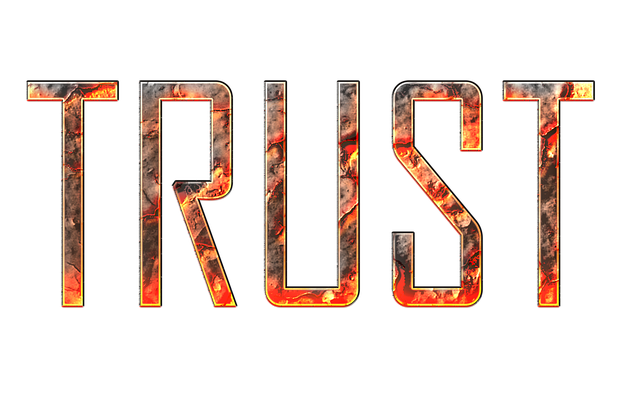Antitrust Laws in the AI Industry: Ensuring Fair Competition and Innovation

Introduction To Antitrust Law
As artificial intelligence (AI) continues to shape our world, concerns about the concentration of power in the hands of a few dominant players have led to increased scrutiny from antitrust regulators. The U.S. Department of Justice (DOJ) and the Federal Trade Commission (FTC) have recently agreed to divide their investigations into the AI industry, with the DOJ focusing on Nvidia and the FTC examining the conduct of OpenAI and Microsoft. This article will explore the antitrust laws relevant to the AI industry, the potential issues that may arise, and the importance of maintaining a competitive marketplace that fosters innovation and benefits consumers.
Understanding Antitrust Laws
Antitrust laws promote and maintain fair competition by preventing anticompetitive practices and ensuring that businesses do not engage in conduct that harms consumers or stifles innovation. In the United States, the primary federal antitrust laws are:
- The Sherman Antitrust Act (1890): Prohibits agreements that unreasonably restrain trade and monopolization or attempted monopolization.
- The Clayton Act (1914): Addresses specific practices, such as mergers and acquisitions, exclusive dealing, and tying arrangements, that may substantially lessen competition.
- The Federal Trade Commission Act (1914) established the FTC and prohibited unfair methods of competition and unfair or deceptive acts or practices.
These laws are enforced by the DOJ, the FTC, and private parties who may bring civil actions for violations.
Antitrust Concerns in the AI Industry

Market Dominance and Monopolization
One of the primary concerns in the AI industry is the potential for a few companies to dominate the market and engage in monopolistic practices. For example, Nvidia holds roughly 80% of the AI chip market, including custom AI processors used by significant cloud computing companies. This level of market power could allow Nvidia to engage in exclusionary conduct or charge high prices, which may harm competition and innovation.
Under Section 2 of the Sherman Act, monopolization is illegal when a company acquires or maintains monopoly power through anticompetitive conduct. To prove monopolization, antitrust enforcers must demonstrate that a company possesses monopoly power in a relevant market and has engaged in exclusionary or predatory conduct to maintain that power.
Mergers and Acquisitions
Another area of concern is the potential for anticompetitive mergers and acquisitions in the AI industry. The FTC is currently investigating Microsoft’s $650 million deal with AI startup Inflection AI, which allowed Microsoft to use Inflection’s models and hire most of the startup’s staff. The FTC examines whether this deal was structured to avoid merger disclosure requirements.
Under Section 7 of the Clayton Act, mergers and acquisitions that may substantially lessen competition or tend to create a monopoly are prohibited. Antitrust regulators will assess the potential impact of a proposed merger on competition, considering factors such as market concentration, barriers to entry, and the likelihood of coordinated or unilateral anticompetitive effects.
Collusion and Price Fixing
Collusion among competitors, such as price fixing or market allocation agreements, is a per se violation of Section 1 of the Sherman Act. In the AI industry, collusion could take the form of accords among companies to divide markets, allocate customers, or fix prices for AI products or services. Such conduct is considered inherently anti-competitive and can result in criminal penalties for the individuals and companies involved.
Related Terms: business practices, federal laws, federal statutes, foreign nations, own antitrust laws
The Importance of Antitrust Enforcement in the AI Industry

Promoting Innovation and Consumer Welfare
Effective antitrust enforcement is crucial for ensuring that the AI industry remains competitive and continues to innovate. By preventing anticompetitive practices and promoting fair competition, antitrust laws help to create an environment where new entrants can challenge established players, leading to the development of better products and services for consumers.
Addressing Data and Computing Power Advantages
U.S. antitrust chief Jonathan Kanter noted that AI technology relies heavily on access to massive amounts of data and computing power, which can give dominant firms a substantial advantage. Antitrust enforcers must be vigilant in addressing situations where companies leverage their data or computing power advantages to exclude competitors or engage in anticompetitive practices.
Balancing Collaboration and Competition
The AI industry often involves collaborations and partnerships between companies, as seen in the case of Microsoft’s investment in OpenAI. While such collaborations can lead to significant innovations and efficiencies, antitrust regulators must ensure that these arrangements do not result in reduced competition or foreclosure of rivals. Striking the right balance between allowing beneficial collaborations and preventing anticompetitive conduct is a key challenge for antitrust enforcers in the AI industry.
Case Law Examples
- United States v. Microsoft Corp. (D.C. Cir. 2001): In this landmark case, the DOJ and several states sued Microsoft for alleged violations of Sections 1 and 2 of the Sherman Act. The court found that Microsoft had engaged in anticompetitive conduct to maintain its monopoly in the operating system market and attempted to monopolize the web browser market. The case resulted in a settlement that required Microsoft to share its APIs with third-party companies and appoint a panel of three people who would have full access to Microsoft’s systems, records, and source code for five years to ensure compliance.
- Federal Trade Commission v. Qualcomm Inc. (9th Cir. 2020): The FTC sued Qualcomm, a dominant supplier of baseband processors for mobile devices, alleging that the company engaged in anticompetitive conduct to maintain its monopoly power. The FTC argued that Qualcomm’s “no license, no chips” policy, which required customers to accept Qualcomm’s preferred terms for patent licensing before supplying them with chips, violated antitrust laws. Although the district court ruled in favor of the FTC, the Ninth Circuit reversed the decision, finding that Qualcomm’s conduct was not anticompetitive.
- Ohio v. American Express Co. (U.S. 2018): In this case, the Supreme Court considered whether American Express’s “anti-steering” provisions, which prohibited merchants from steering customers toward other credit cards, violated antitrust laws. The Court held that the plaintiffs failed to prove that the provisions had anticompetitive effects in the relevant market, which the Court defined as the two-sided market for credit card transactions. The decision emphasized properly defining the relevant market in antitrust cases.
Frequently Asked Questions (FAQs)

What is the difference between the DOJ and the FTC regarding antitrust enforcement?
The DOJ and the FTC share responsibility for enforcing federal antitrust laws. The DOJ’s Antitrust Division focuses on criminal antitrust violations and civil enforcement in specific industries, while the FTC focuses on civil enforcement and consumer protection. The two agencies often coordinate their efforts to avoid duplication and ensure consistent enforcement.
Can private parties bring antitrust lawsuits?
Yes, private parties harmed by antitrust violations can bring civil actions under the Sherman Act and the Clayton Act. These private lawsuits can seek injunctive relief, treble damages, and attorneys’ fees.
What are the potential penalties for violating antitrust laws?
Violations of antitrust laws can result in both civil and criminal penalties. Companies found to have violated antitrust laws may face monetary fines, injunctive relief, and damages in civil actions. Individuals involved in criminal antitrust violations, such as price fixing or bid rigging, can face substantial fines and imprisonment.
How do antitrust laws apply to companies outside the United States?
U.S. antitrust laws can apply to foreign companies and conduct that substantially affect U.S. commerce. The Foreign Trade Antitrust Improvements Act (FTAIA) governs the extraterritorial application of U.S. antitrust laws, requiring that the conduct has a direct, substantial, and reasonably foreseeable effect on U.S. domestic commerce or import trade.
What should companies in the AI industry do to ensure compliance with antitrust laws?
Companies in the AI industry should develop and maintain robust antitrust compliance programs. These programs may include training employees on antitrust risks, establishing guidelines for interactions with competitors, and implementing procedures for reviewing potential mergers and acquisitions. Companies should consult with experienced antitrust counsel when entering into collaborations, joint ventures, or other arrangements that may raise concerns.
Key Takeaways
- The DOJ and FTC have agreed to divide their antitrust investigations into the AI industry. The DOJ will focus on Nvidia, and the FTC will examine OpenAI and Microsoft.
- Antitrust laws, such as the Sherman Act, the Clayton Act, and the FTC Act, are designed to promote fair competition and prevent anticompetitive practices.
- Potential antitrust concerns in the AI industry include market dominance and monopolization, anticompetitive mergers and acquisitions, and collusion among competitors.
- Effective antitrust enforcement is crucial for promoting innovation, consumer welfare, and a competitive marketplace in the AI industry.
- Companies in the AI industry should prioritize antitrust compliance by developing comprehensive compliance programs and seeking guidance from experienced antitrust counsel.
Conclusion
As the AI industry continues to evolve and shape our world, the role of antitrust laws in ensuring fair competition and promoting innovation has never been more important. The recent agreement between the DOJ and FTC to divide their investigations into the AI industry underscores the growing regulatory scrutiny of the sector and the potential for antitrust violations.
By understanding the key antitrust laws and the potential issues that may arise in the AI industry, companies can take proactive steps to ensure compliance and foster a competitive marketplace that benefits consumers and encourages innovation.
As antitrust enforcers continue to navigate the unique challenges posed by the AI industry, companies must stay informed, vigilant, and committed to the principles of fair competition that underpin our economic system.
Here are short definitions and examples for the selected keywords:
Relevant market: The market in which a product or service competes, considering factors such as geography, product characteristics, and consumer preferences.
Example: In an antitrust case involving a merger between two smartphone manufacturers, the relevant market may be defined as the global smartphone market.
Monopoly power: The ability of a company to control prices or exclude competition in a relevant market.
Example: A pharmaceutical company that holds the patent for a life-saving drug and can set prices significantly higher than the cost of production may be considered to have monopoly power.
Attempted monopolization: When a company engages in anticompetitive conduct to achieve monopoly power, even if it does not ultimately succeed.
Price fixing: An agreement between competitors to set prices at a certain level, effectively eliminating price competition.
Example: Several airlines agreeing to charge the same fares for flights between specific cities would be an example of price fixing.
Market allocation agreements:
When competitors agree to divide markets geographically or by customer type to reduce competition.
Example: A market allocation agreement would involve two construction companies agreeing not to bid on projects in each other’s designated territories.
Exclusive dealing: A contractual arrangement where a buyer agrees to purchase all or a substantial portion of their requirements from a single supplier, potentially foreclosing competition.
Example: A popular soft drink manufacturer that requires restaurants to sell only its products in exchange for favorable pricing or promotional support would be engaging in exclusive dealing.
Predatory pricing involves setting prices below cost to drive competitors out of the market and then raising prices once competition has been eliminated.
Example: A large retailer selling products at a loss to undercut smaller competitors, intending to raise prices once the smaller companies are forced out of business.
Sherman Act Section 1: Prohibits agreements that unreasonably restrain trade, such as price fixing, market allocation, and group boycotts.
Example: A group of competing manufacturers agreeing to set minimum product prices would violate Section 1 of the Sherman Act.
Sherman Act Section 2:
The Sherman Act prohibits monopolization, attempted monopolization, and conspiracies to monopolize. For example, a dominant technology company using its market power to exclude competitors by denying them access to essential patents or technical standards could violate Section 2 of the Sherman Act.
Per se rule: Certain categories of agreements, such as price fixing and market allocation, are considered inherently anti-competitive and are deemed illegal without the need to prove their actual effects on competition.
Example: If multiple competing companies are found to have agreed on setting prices, this would be considered a per se violation of antitrust law, regardless of the agreement’s actual impact on the market.
These definitions and examples provide a foundation for understanding key concepts in antitrust law. It is essential to note that antitrust cases often involve complex factual and legal analyses, and the application of these concepts may vary depending on the specific circumstances of each case.













